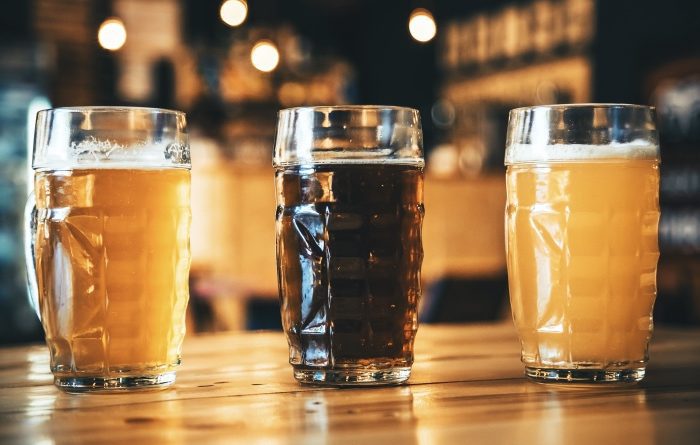In the hustle and bustle of modern life, convenience stores like 7-Eleven have become indispensable. They offer a wide range of products, from snacks to household essentials, and yes, even alcoholic beverages like beer. But a common question that arises for many is: What time does 7-Eleven stop selling beer? In this article, we will delve deep into this topic, exploring the various factors that influence this decision and the reasons behind them.
Legal Restrictions
Navigating the world of alcohol sales, especially in a diverse and vast country like the U.S., requires a deep understanding of the intricate web of legal restrictions. These laws, which vary significantly across different jurisdictions, are designed to regulate the sale, purchase, and consumption of alcoholic beverages, ensuring public safety and order. Let’s delve deeper into the legal landscape surrounding the sale of beer and other alcoholic beverages.
The Framework of Alcohol Regulation:
The U.S. has a unique system of alcohol regulation, often referred to as the “three-tier system.” This system separates the production, distribution, and retail sale of alcohol. Each tier has its regulations, ensuring that the production and sale of alcohol are monitored at every stage.
- Federal Oversight: At the federal level, the Alcohol and Tobacco Tax and Trade Bureau (TTB) oversees the production and importation of alcohol. While the TTB sets certain standards, the specifics of sales and distribution are largely left to individual states.
State and Local Laws:
The real complexity in alcohol sales regulation arises at the state and local levels. With each state having the power to set its rules, there’s a vast array of regulations across the country.
- Variability Across States: No two states have identical alcohol laws. Factors influencing these laws include historical events, cultural attitudes, and local demographics. For example, Utah, with its significant Mormon population, has stricter alcohol laws compared to Nevada, known for its vibrant nightlife.
- County and City Regulations: Within states, counties, and cities can impose additional restrictions. This layering of regulations means that two neighboring cities might have vastly different rules. For instance, a county might prohibit the sale of alcohol entirely, making it a “dry” county, while the neighboring one might allow sales with specific restrictions.
Blue Laws:
The term “Blue Laws” might sound unfamiliar to some, but its implications are widely felt, especially in the context of alcohol sales.
Historical Context: Blue Laws date back to the colonial era and were initially designed to restrict activities on Sundays, the Christian Sabbath. These laws were named either for the blue paper they were originally printed on or the term “blue” meaning rigidly moral.
Modern Implications: While many Blue Laws have been repealed or aren’t strictly enforced, some still impact alcohol sales. In certain states, the sale of alcohol is either restricted or prohibited on Sundays. For retailers like 7-Eleven, this means they must be acutely aware of these laws to avoid legal complications. For consumers, it means planning ahead if they intend to purchase alcohol in such states on a Sunday.
7-Eleven’s Corporate Policies
While legal restrictions play a significant role, 7-Eleven, as a corporation, also has its policies regarding beer sales. These policies might be influenced by the company’s desire to maintain a particular image, respond to community concerns, or manage its supply chain efficiently.
- Uniformity Across Stores: Even though 7-Eleven could technically sell beer at different times in different locations based on local laws, they might choose to have uniform hours across a region for simplicity’s sake.
- Community Relations: In areas where excessive late-night drinking is a concern, 7-Eleven might choose to stop selling beer earlier than required by law to foster good community relations.
Store-Specific Decisions
The 7-Eleven brand, while globally recognized, operates on a model that allows for significant variation from one store to another. This flexibility is primarily due to the distinction between corporate-owned stores and franchise-owned outlets. Let’s delve deeper into these differences and how they might impact beer selling times.
- Corporate vs. Franchise Ownership: Corporate-owned 7-Eleven stores operate directly under the company’s management. They typically follow standardized operating procedures, including beer selling times. On the other hand, franchise-owned stores are run by individual or group owners who have purchased the rights to operate under the 7-Eleven brand. While they must adhere to certain corporate guidelines, they also have a degree of autonomy in their operations.
- Franchise Autonomy: The concept of franchise autonomy is central to understanding the variability in beer selling times. Franchise owners, while bound by 7-Eleven’s overarching policies and local legal regulations, have the discretion to adjust their operations based on what they believe is best for their specific store. This means that if a franchise owner identifies a unique need or opportunity in their community, they might adjust their beer selling times accordingly. For instance, a franchise near a university might extend its hours during exam periods when students are likely to be up studying late.
- Location Factors: The location of a 7-Eleven store plays a pivotal role in its operations. A store situated in a serene suburban setting might cater to families and have standard operating hours. In contrast, a store in the heart of a city, surrounded by nightlife and entertainment venues, might see a surge in late-night customers and adjust its beer selling times to cater to this crowd. The demographics, local culture, and even events can all influence a store’s decision on beer sales.
Practical Considerations
While policies and laws are crucial, on-the-ground realities often dictate operational decisions, including beer selling times.
- Stock and Supply Chain: The availability of beer in a 7-Eleven store is not just about the permissible selling times. If a store faces supply chain disruptions or unexpectedly high demand leading to stock depletion, it might not have beer available for sale, even during legal selling hours. Regular inventory checks and efficient supply chain management are crucial to ensure consistent availability.
- Staffing: The sale of alcoholic beverages comes with its set of responsibilities. Staff need to be trained to verify age through ID checks and to recognize signs of intoxication. If a store is operating with minimal staff, especially during late hours, they might opt to halt beer sales to ensure they can manage these responsibilities effectively.
How to Find Out Specific Times
For those keen on knowing the exact beer selling times of their local 7-Eleven, a proactive approach is best.
- Check Local Laws: Begin by familiarizing yourself with the local regulations. Many government websites provide information on alcohol sale hours, ensuring you have a baseline understanding.
- Call the Store: For the most precise information, a direct call to the store in question is recommended. Store managers or staff can provide up-to-date details on their beer selling times.
- 7-Eleven’s Website: As a modern retail chain, many 7-Eleven stores have their operational details listed online. The official 7-Eleven website or specific store websites might offer insights into store hours and any special restrictions or timings related to beer sales.
FAQ
Why does the U.S. have such varied alcohol laws across states?
A: The U.S. operates on a federalist system, where both the national government and individual states have governing powers. The 21st Amendment to the U.S. Constitution, which ended Prohibition, granted states the authority to regulate the distribution and sale of alcohol within their borders. As a result, each state has developed its regulations based on its cultural, historical, and demographic factors.
Are there any states where 7-Eleven doesn’t sell alcohol at all?
A: Yes, in some “dry” counties or municipalities within certain states, the sale of alcohol is entirely prohibited. While 7-Eleven operates in these areas, they do not sell alcoholic beverages in compliance with local laws.
How does 7-Eleven ensure compliance with varied state and local alcohol laws?
7-Eleven, like other retailers, invests in training for its staff to understand and comply with local alcohol regulations. They also use point-of-sale systems that prompt ID checks and restrict sales during non-permissible hours.
Can individuals from one state purchase alcohol in another state where regulations are less strict?
While it’s possible to purchase alcohol in a state with more lenient regulations, transporting it back to a state with stricter laws can be illegal. Some states have laws against importing alcohol purchased elsewhere, especially in large quantities.
Are there any federal laws that standardize alcohol sales across the U.S.?
While the federal government oversees the production and importation of alcohol through the Alcohol and Tobacco Tax and Trade Bureau (TTB), the specifics of sales, distribution, and consumption are primarily regulated at the state level. There isn’t a standardized federal law that dictates alcohol sales across all states.
How do Blue Laws impact online sales of alcoholic beverages?
Blue Laws primarily affect physical retail sales. However, if an online sale results in a delivery scheduled for a Sunday in a state with Blue Laws against Sunday alcohol sales, the delivery might be postponed to a permissible day or might require special licensing by the seller.
Conclusion
The question, “What time does 7-Eleven stop selling beer?” might seem simple, but as we’ve seen, the answer can be complex. It’s a dance of legal restrictions, corporate policies, individual store decisions, and practical considerations. The next time you’re planning a late-night beer run, it’s always a good idea to check ahead and ensure you won’t be left empty-handed.

